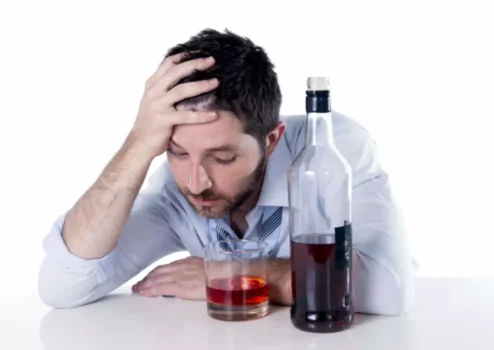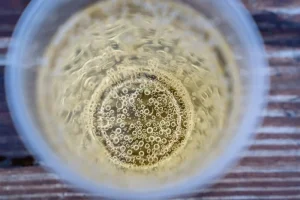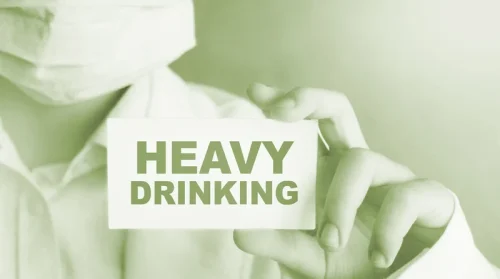
Under the influence of alcohol, individuals may find it more difficult to control their impulses and manage their emotions effectively, leading to a heightened susceptibility to feelings of anger and frustration. “Keep in mind that any amount of drinking can influence emotions and behavior,” O’Brien says. Alcohol can fuel rage or aggressive behaviors even when a person isn’t intoxicated.
Build a Support System
Medical detox is typically considered the optimal method for allowing alcohol to safely process out of the body while under continual medical supervision. When people have difficulty controlling impulses, trouble regulating their emotions, or may present a danger to themselves and/or others, medical detox is required. Medical detox programs are often the first stage in a comprehensive addiction treatment program. These programs usually last 5-7 days on average and commonly use medications to manage difficult physical and emotional withdrawal symptoms. Similarly, mixed findings were also reported for 5-HT1A and 5-HT2A receptor bindings (Underwood et al., 2008, 2018; Storvik et al., 2009). Chronic alcohol intake increases the metabolites of serotonin in the raphe nuclei area, however reduces 5-HT2A protein levels in the mice cortex, indicating reduced serotonergic activity (Popova et al., 2020).

Why do only some individuals become aggressive under the influence of alcohol?
There’s a reason for this, and it’s not as simple as “alcohol makes you mad.” At Serenity Lane, we care deeply about everyone in our Oregon communities, and we don’t want to see them controlled by alcohol or anger. I made a joke that upset him and he started yelling and calling me names. I https://ecosoberhouse.com/ have learned that when Tom gets like that, it’s best to just agree with him. From exploring the neurological effects of alcohol as a depressant to unraveling the psychological complexities underlying anger manifestation, we have gained a profound understanding of the underlying mechanisms.
- Return to problematic drinking often occurs after treatment for alcohol dependence, even when that treatment was initially successful.
- Based on the content of treatment protocols, anger regulation material comprised approximately 0.4% of the AAF condition and 64.2% of the AM condition.
- The symptoms of borderline personality most often first appear during teenage years and early twenties worked with one young man early in my practice who clearly articulated the impact of “feeling empty”.
- A current review indicates that the cognitive processes often affected in acute alcohol intoxication and chronic alcohol consumption that may contribute to alcohol-induced aggression can be improved by computer-aided cognitive training (e31).
Alcohol-Related Aggression—Social and Neurobiological Factors
Various factors such as environmental, social, situational, and cultural context have distinctive consequences toward substance use and its effects on individuals (Latkin et al., 2017). Violence related to substance use has been widely reported and studied, particularly the potential for violent outcomes between the different substances of use (Duke et al., 2018). Studies from various countries have reported crimes and domestic violence owing to alcohol (Hagelstam and Häkkänen, 2006; Mayshak et al., 2020), especially during the recent state of global alcoholism and anger coronavirus disease 2019 (COVID-19) pandemic (Finlay and Gilmore, 2020). According to the Substance Abuse and Mental Health Services Administration (SAMHSA), nearly 8 million adults in the United States struggled with both a mental health disorder and addiction in 2014. When a person struggles with both alcohol addiction and anger management problems, the issues exacerbate each other. The journal Experimental and Clinical Psychopharmacology reports on studies showing that alcohol can increase aggression in both men and women, but more so in men.
What Is The Most Popular Program For Recovering Alcoholics?
Fortunately, people who become irrationally mad when drunk can work to prevent and treat their behavior. Support groups such as Alcoholics Anonymous (AA) and Self-Management And Recovery Training (SMART) are open to anyone with a substance use disorder. Outpatient treatment is less intensive than inpatient treatment or partial hospitalization programs. They are best for people who have a high motivation to recover, but cannot leave their responsibilities at home, work, or school. PHPs accept new patients, and people who have completed an inpatient program and require additional intensive treatment. People who are the closest to the alcoholic who struggled with anger often get the most abuse.

Increased likelihood of expressing anger while intoxicated
- It is crucial to understand the significance of co-treatment approaches for individuals grappling with both alcohol recovery and anger management.
- When you live with or care for someone who becomes abusive when they’re intoxicated, the consequences may well be more than just hurt feelings.
- This is called alcohol myopia, and it’s another reason why people are quick to anger when they drink.
- Alcohol’s impact on the frontal lobe, a region responsible for executive functions such as emotional regulation, decision-making, and impulse control, is profound.
This is part of our ongoing commitment to ensure FHE Health is trusted as a leader in mental health and addiction care. When you live with or care for someone who becomes abusive when they’re intoxicated, the consequences may well be more than just hurt feelings. The first two authors, experienced in AM and AAF treatment protocols, supervised therapists one hour per week in each condition throughout interventions. During supervision, each active case was discussed individually with regard to adherence to the manualized treatment protocol and the specific content of the session. Overall, exhibiting one or a combination of the above factors can increase your chances of becoming angry when intoxicated.
The Relationship Between Anger and Aggression
Anger often leads to excessive drinking, which can then amplify anger issues. Without breaking this cycle, it can damage both you and those around you. Addressing both anger and drinking is crucial, with professional help highly recommended. Outpatient programs are often part of aftercare programs once you complete an inpatient or PHP program. It is important for people undergoing treatment to have a stable and supportive home environment without access to drugs and alcohol. The goal of outpatient treatment is to provide therapy, education, and support in a flexible environment.

Alcohol and Domestic Abuse/Violence
Additionally, when you don’t reflect on mistakes you’ve made, you’ll probably repeat them. It’s sometimes easier for angry people to become aggressive when they’re inebriated. A slight annoyance may turn into an infuriating problem, thanks to alcohol. The link between anger and alcoholism is cyclical—they can exacerbate each other if left unchecked. Addressing and letting go of anger is vital in the Alcoholics Anonymous (AA) 12-step approach, which involves a moral self-inventory and overcoming personal flaws.
Alcohol use disorder (or alcoholism) is also a clear issue for the brain. It has been linked to a higher risk for dementia, especially early-onset dementia in a study of 262,000 adults, as well as to smaller brain size. Maybe your friend is under a great deal of stress and their insulting you is out of character. Perhaps you think about the many potential negative consequences of getting into a verbal or, even worse, a physical fight. This information, which could actually help you to hold back from being aggressive, is typically less salient than the overt, verbal insult. Chances are, you’ve either seen this in your friends or you’ve seen it in yourself.
